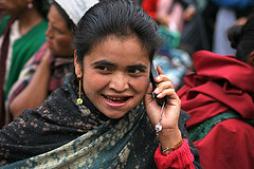sex education
Posted by MohiniBhavsar on Aug 23, 2010
Participant and Interviewer Attitudes toward Handheld Computers in the Context of HIV/AIDS Programs in Sub- Saharan Africa data sheet 2005 Views
Author:
Karen G. Cheng, Francisco Ernesto and Khai N. Truong
Abstract:
Handheld computers have untapped potential to improve HIV/AIDS programs in sub-Saharan Africa, particularly in the collection of survey data. We conducted an experiment in three neighborhoods of Luanda, Angola to assess the impact of the technology on people’s comfort and willingness to disclose sensitive personal information, such as sexual behavior.
Participants were asked about their HIV/AIDSrelated knowledge, attitudes, and practices by local interviewers using either handheld computers or paper surveys. T-tests showed no differences between participants’ self-reported comfort across handheld and paper conditions. However, participants in the handheld condition were more likely to give socially desirable responses to the sexual behavior questions than participants in the paper condition. These results suggest that using handheld computers in data collection in sub-Saharan Africa may lead to biased reports of HIV/AIDS-related risk behaviors.
Posted by CorinneRamey on Oct 03, 2009
For the International Planned Parenthood Federation, the number 15 just made sense. It is now 15 years since the Cairo International Conference on Population and Development, when 179 governments agreed on a yet-unfulfilled plan to provide universal sexual health services by the year 2015. With the children born the year of the conference now 15 years old, the foundation felt it was time to act.
So the campaign 15andcounting was born. The campaign aims to engage young people in sexual health advocacy, mainly by having them sign a petition and complete a survey accessible both on the web and on a mobile WAP site. The petition will be presented to the United Nations in mid-October.
"They need access to condoms and high quality information, and all these services that were talked about in 1994," said Chris Wells, creative design director of the International Planned Parenthood Foundation, of the 15-year-olds born the year of the conference.
Posted by CorinneRamey on Apr 02, 2008
In 2005, Samsung released a phone designed especially for women. The phone, with a "curvaceous, feminine design" included applications like a fragrance and aromatherapy guide, a shopping list, a calorie counter, a biorhythm clock, and a calendar to help women keep track of their periods. "Almost every woman will desire it," wrote one reviewer, in a piece entitled "High tech for the ladies."
Those marketers and reviewers have it all wrong.
For women around the world, mobile phones are not about sexy designs and knowing when it's that time of the month. Mobile phones are slowly changing the lives of women who use them and the communities in which they live. They've created a path out of poverty for many women in the developing world, as microfinance and "phone ladies" running businesses increase in numbers. Mobiles are enabling translation for victims of domestic violence in the United States, provide Ukrainian sex workers a way to safety, and protect Philippine domestic workers in the Middle East. Mobile phones are giving voice to female reporters in Africa and encouraging free speech in Egypt. And as mobile phones become increasingly ubiquitous -- they're already at 3.3 billion and counting -- they are likely to continue to influence the lives and societies of the women who use them in the future.


